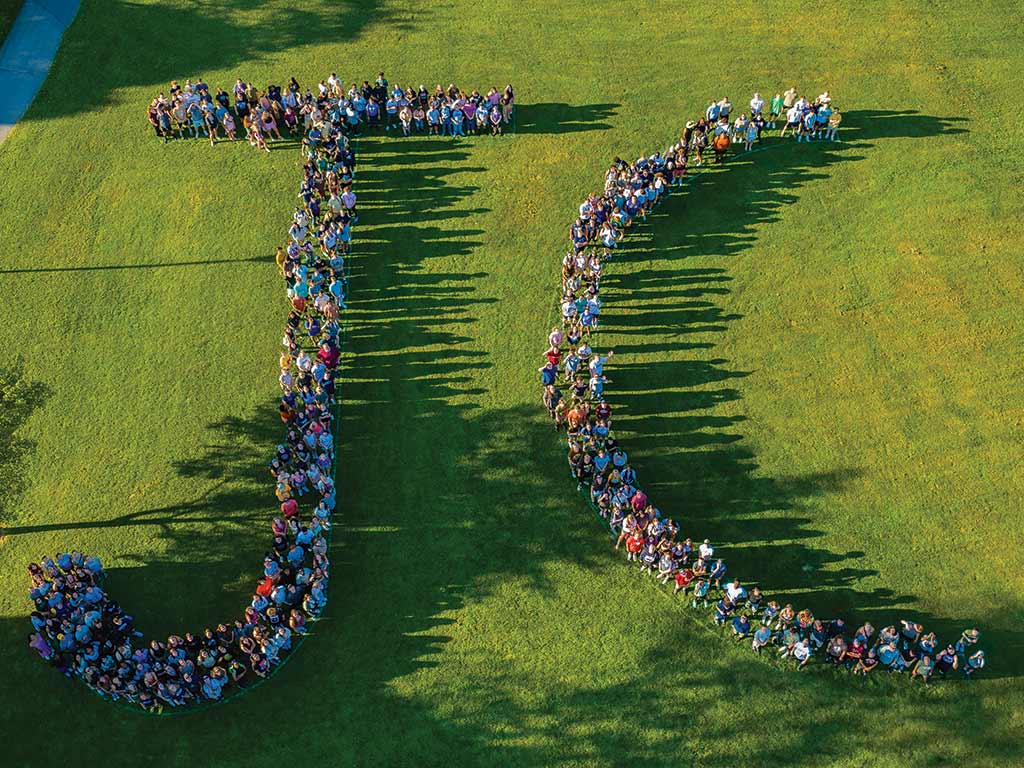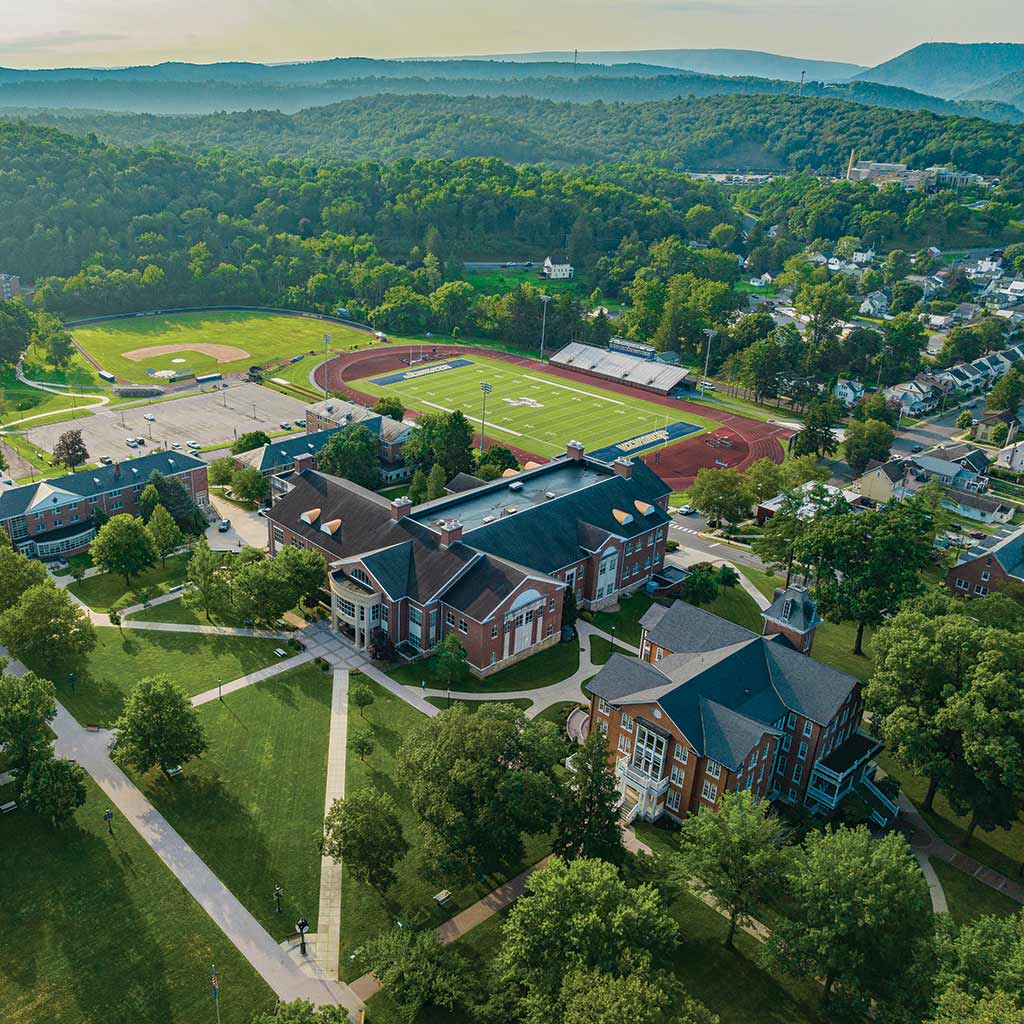Juniata College welcomed the third-largest first-year class in its history in August. Recruiting a historic number of students during any academic year is a significant achievement, but to accomplish that feat during these economically challenging times is even more impressive. With a steady decline of college-age students and inflation on the heels of a global pandemic, Juniata has achieved what many other colleges have not, adaptability and strong growth. The leadership at Juniata has spent a decade positioning students—and, in turn, the college—for this success and a triumphant future.
“Juniata has always had an extraordinary reputation of great outcomes in the higher education community. The reputation has always been extremely strong and was always driven by the sense of community that is here. I wanted to be part of the place that helped students realize their dreams,” said President James A. Troha, reflecting on his 10 years at the helm of the institution.
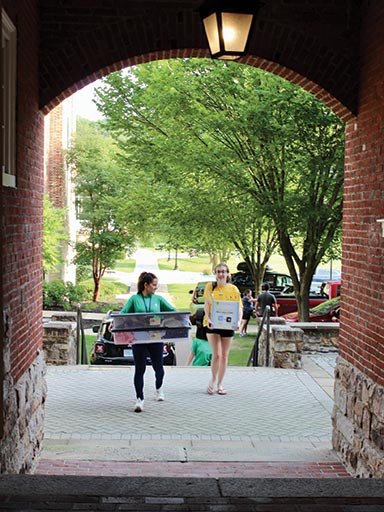
Upon starting in fall 2013, Troha immediately went to work focusing on Juniata students and ensuring their education continued to prepare them to be curious and global citizens. One of his early priorities was a national search for a provost to lead Juniata as chief academic officer. He selected Lauren Bowen, who set out to reimagine academics, student services, and students’ positions as global citizens.
“I understood that we needed to make explicit and then deliver on the promises we make to our students and who we want them to be. My first priority, working in partnership with the faculty, was articulating those attributes of a Juniata graduate or student learning outcomes and then ensuring we had the curriculum and general education requirements to deliver on that promise. No student can graduate without a community-engaged learning experience or without being globally engaged. We positioned students to be both in the world and of the world in ways to challenge students to think about how they know what they know,” Bowen said.
In 2016, Matthew Damschroder joined Juniata as vice president for student life and dean of students with the goal to support students throughout their personal and educational journey at Juniata.
“There has been considerable progress in academic policies and curriculum. The provost engaged faculty to work on new curriculum from a structure that was in place for 30-plus years. They addressed the needs of contemporary students in new ways and respected the character of the campus. It was about individualized, personalized attention to students to chart their own courses,” he said.
Academic programs went through revisions, including consciously developing degrees for current and future needs has been an important responsibility.
Those new programs include master’s degrees in business administration, bioinformatics, education, and data science. Students may also choose from other innovative undergraduate degrees, such as criminal justice, environmental engineering, exercise science, and the accelerated (3+1) dual degree program that allows students to earn a bachelor’s degree and master’s degree in four years.
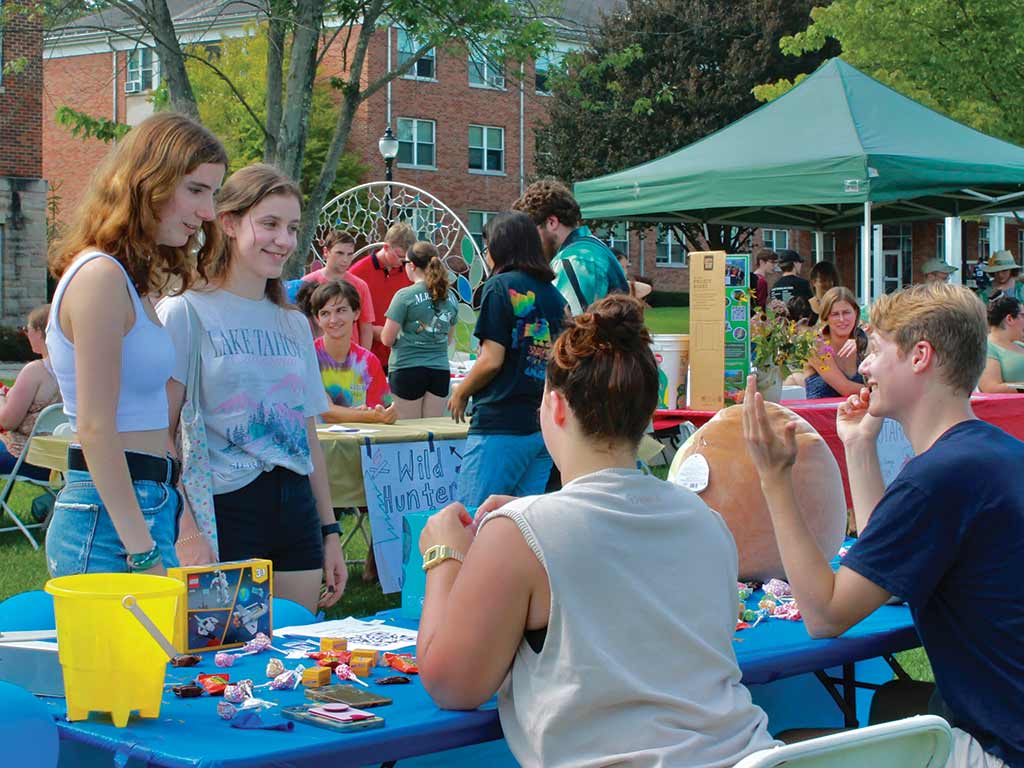
“The development of new academic programs matters so that we prepare students for the world that is and will be. And how we tell our story to emphasize that dynamism while retaining our distinctive commitment to experiential education and interdisciplinarity matters as well,” Bowen said.
In addition to that mindfulness of positive outcomes, holistic awareness for students has been a priority.
“Security for mental health spaces where students feel safe and supported propelled our continued work at the college. We enhanced mental health support services and counseling. We built out programs and staff to really meet the growing demand for student mental health support and a mental well-being structure,” Damschroder said.
The focus on student success was part of the impetus for the Statton Learning Commons, which is a renovation of the Beeghly Library. The design for this space prioritizes the combination of technology and collaborative learning.
Other building and renovation projects have gained traction during the last decade, adding to campus functionality, appeal, and opportunities for students. Nathan Hall, Gibbel Field, Raffensperger Tennis Complex, Good Hall, Brumbaugh Academic Center, Ellis Hall, and Kepple Hall have been completed or renovated, including work in Rosenberger Auditorium.
Beyond these renovations and new facilities, creating easier access for all people has been a central and critical piece to these campus projects, making Juniata a more accessible place.
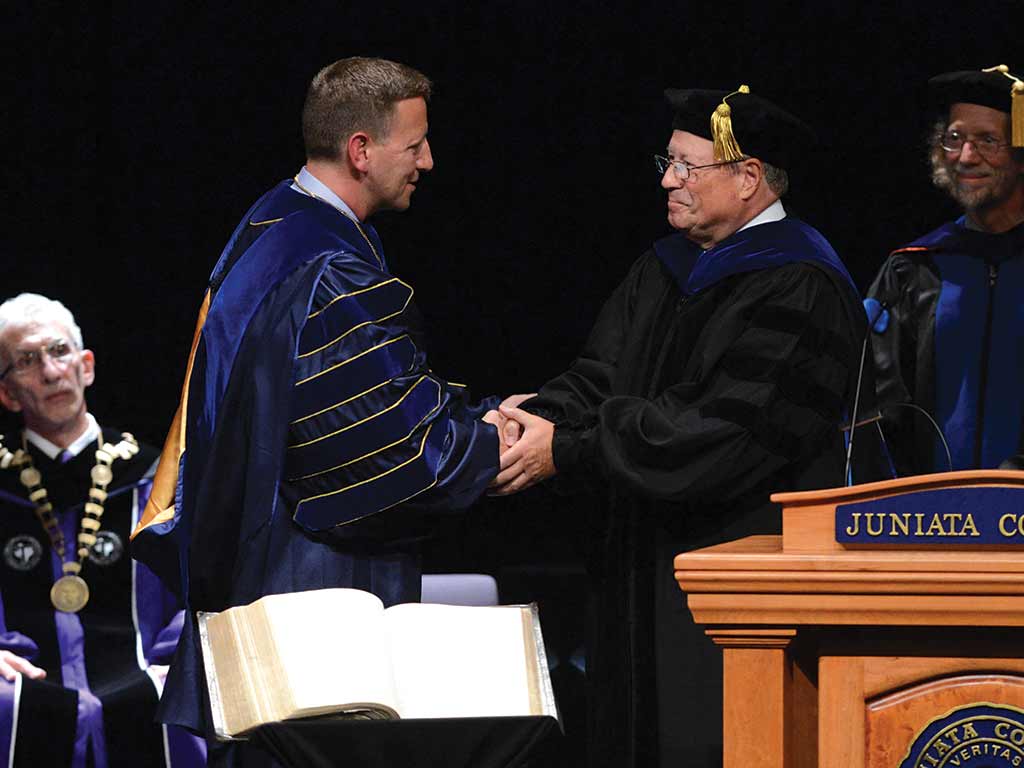
“There were very little to no handicapped accessible entrances, no elevator to the dining hall, no access to the second or third floors of Good Hall and Ellis Hall. Jim created a level of access for folks who are usually disenfranchised because of maneuverability. He was probably the most accessible president as far as he had the greatest to do with accessibility and ADA compliance in buildings. Because of him, people do not have to think about those things,” said Vice President for Advancement and New Strategic Initiatives Jim Watt.
The consciousness of establishing a place where everyone is welcome is the equity-minded culture highlighted in the College’s “All In: The Strategic Plan for Juniata College” that launched in February 2023. That commitment is made alongside pledges to enhance academic distinction and the campus experience.
The call to enrich the campus experience has yielded additional athletic teams and extracurricular activities over the past 10 years. Men’s and women’s golf, men’s and women’s lacrosse, men’s swimming, mock trial, and the Screaming Eagles pep band have been transformative for students.
“They give more students the opportunity to participate. We open doors for prospective students,” said Nikki McLellan Ayers ’06, athletic director.
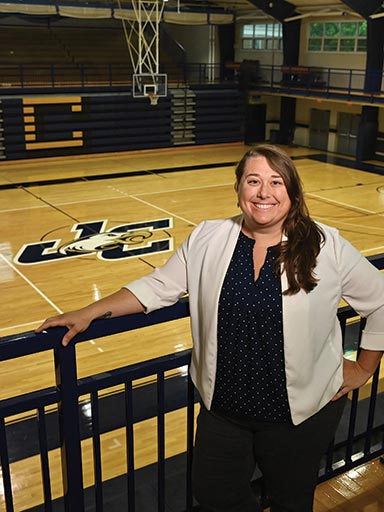
Ayers, who played soccer at Juniata, is the first full-time and first female athletic director. She chose to lead the athletics department in achieving its goals and to return to the deep sense of community she finds at the College.
“Juniata is a home and a home away from home. I wanted to pay it back, for Juniata students to have a similar experience to mine. I am in complete support of the mission and live it every day in our core values and standards,” she said.
She similarly wants to assist Juniata in crossing the finish line as a top competitor athletically, while remaining passionate about pursuits off the field.
“I want to support all our sports programs to be top of the Landmark Conference. Non-competitively, our department supports students’ mental health, which is a very real thing. My long-term vision for Juniata is to branch out more for the faculty and staff, and even into the local community, to have robust recreation,” Ayers said.
The generosity of alumni, donors, and grants made it possible for Juniata to make changes to the campus experience and increase student opportunities.
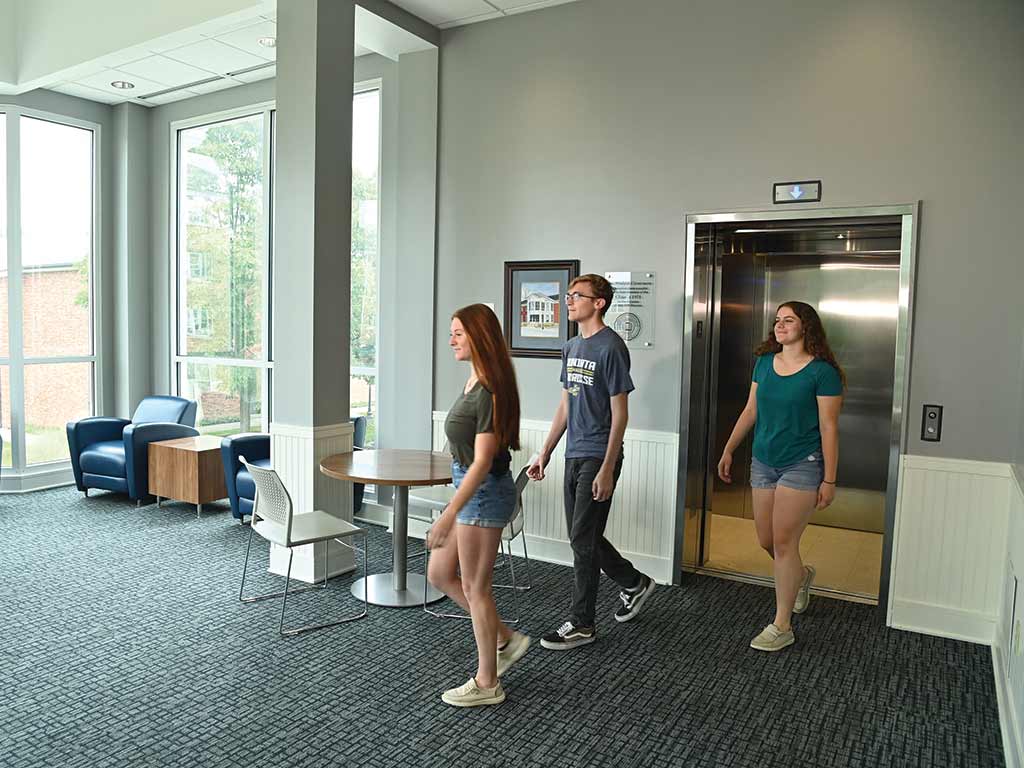
“Financial security has been a priority. Tom Kepple finished his presidency with a very successful campaign, and Jim decided to do another one for another $100 million. We did not know where that would come from, but we finished over the goal. We had a really great team with key donors to make that happen,” said Robert McDowell ’67, former chair of the board of trustees.
The Believe Campaign focused on Juniata’s commitment to affordability and creating a college that will exceed student academic and extracurricular needs.
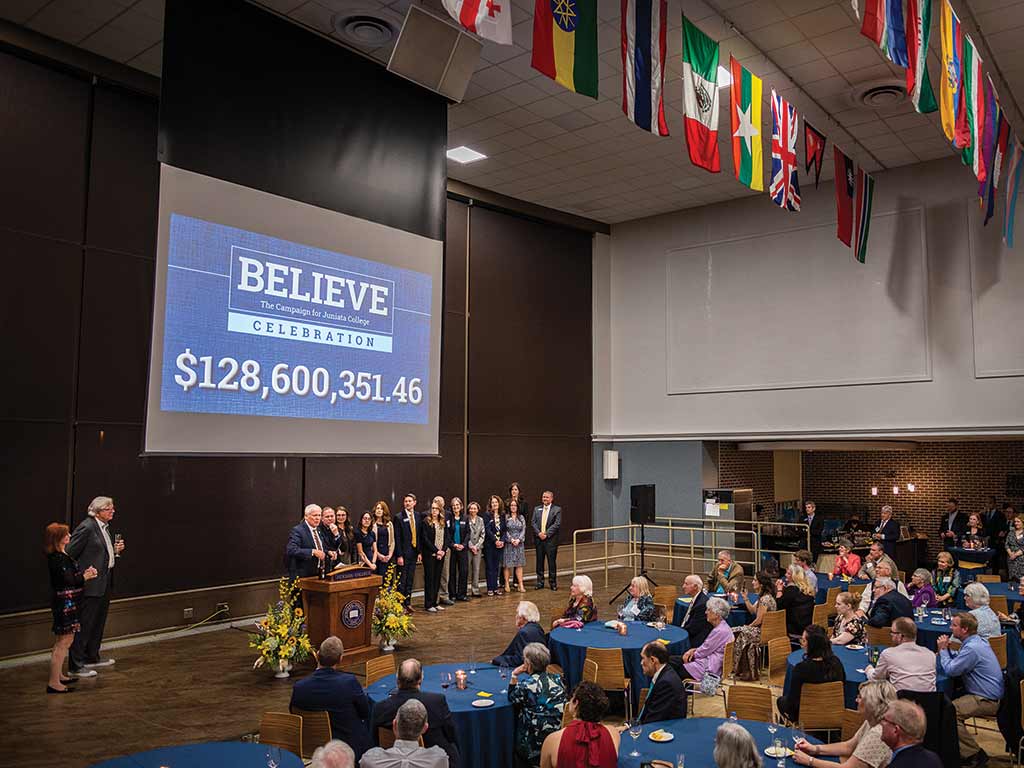
“Our campaign that we finished in 2021 closed at over $128 million. That comprehensive campaign was student-centric and helped us do many things, including new buildings, facilities, scholarships, faculty support, and growing our endowment,” Troha said.
The drive to make Juniata succeed and continue its strong academic reputation is the central theme of those who are entrusted with offering students the experiences to empower them to flourish now and in the years ahead.
“Students who come to Juniata have financial success by the time they are 40; the majority jump two tax brackets from their parents. Juniata ranks highly as far as breaking the social stratification barrier,” said Watt. “We want more students to move through the process in a way that they can be successful. With scholarships, we meet students where they are and educate them at an affordable cost. We want to sustain and grow Juniata with the right vision, community focus, and drive.”
Juniata has achieved much since its founding in 1876, while remaining rooted in its Brethren values. Leadership has a profound awareness of Juniata’s deep sense of community, a consciousness of the special place it is, and awareness of its enduring educational impact. The tenets are the guides that will continue to affect positive change for the College.
“My representation as a trustee and chair was heavily influenced by the values and the sense of stewardship and responsibility that I felt. My whole notion of leadership is trying to do things to leave Juniata in a better place than when I was there, that was something that always guided me,” McDowell said. “I believe strongly in our mission, responsible and ethical leadership in the global community. That kind of thing was very important to me in terms of what we do here in preparing students to go into the world.”
